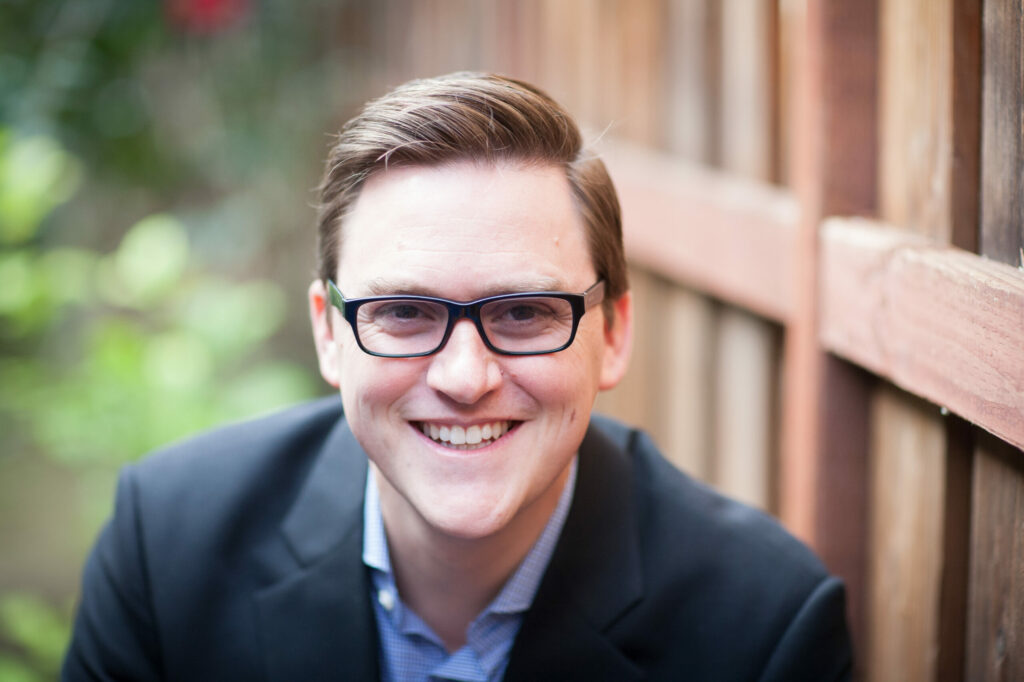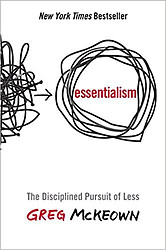Book – Essentialism, The disciplined pursuit of less (Summary)
Author – Greg Mckeown
Genre – Self-help
Published – 2014
We are living in a time when we are bombarded with choices. Considering our attention is our biggest asset, it is essential to consider what we focus on, and that’s exactly what Greg empowers readers with his simple-to-follow strategies to become essentialists.
About the Author –

Greg Mckeown is an author, public speaker, leadership, and business strategist. He is best known for his best-selling book Essentialism. He is the founder and CEO of McKeown, Inc., a leadership and strategy design agency based in California.
About The Book –
Greg explains the concept of essentialism in four parts: Essence – Explore – Eliminate – Execute.
Excerpts From Each Part –
Essence
- Greg explains the difference between essentialists and non-essentialists, how both think like I have to v/s I choose to. It acts like saying yes without thinking v/s, saying no to everything except the essential, and being unsure whether the right things are getting done v/s getting the right things done. Feeling overwhelmed and exhausted v/s experiencing joy in the journey.
- He further explains that non-essentialism prevails everywhere because of too many choices, too much social pressure, and the Idea that we can have everything. And as much as we’d like to, we cannot have it all. Economist Thomas Sowell wrote: “There are no solutions. There are only trade-offs.”
- A non-essentialist thinks almost everything is essential, while an essentialist thinks almost everything is non-essential.
Explore
Essentialists explore more options before committing, focusing on only a few vital ideas. Here are a few ideas for exploring more –
- Escape to think. Non-essentialist is too busy to think about life, while Essentialist escapes and explore life.
- I am looking for what is essential in information and listening to what is not being said.
- They are taking out time for Play. Non-essentialist thinks Play is an unproductive waste of time, while Essentialist knows Play sparks exploration.
- Sleep has been recognized as one of the most critical factors for productivity in many researches. Essentialist understands that and keep sleep a priority.
Eliminate
Exploring more options enables Essentialist to eliminate trivial many. Using the Wardrobe metaphor, Greg explains it well of the elimination process. There are a few ideas for stopping trivialities –
- Clarify – There is a difference between pretty clear and precise. When we have a clear idea of a goal, it becomes simple and inspiring to work on it and stay inspired throughout the process so we can see progress.
- Powerful No – Many of our problems come from saying yes too early and not saying No soon enough. We should say No if the proposal does not convince us.
- Uncommit – We can also back out from things we have committed to without knowing what it will entail by apologizing sincerely.
- Limit – We must learn to set boundaries in our personal or professional lives. If we are not careful of what we allow, we can soon have much more on our plate than we can handle.
Execute
Once we eliminate trivial things, we have more time to plan and execute our goals. Few ideas for effortless execution –
- Buffer – Essentialist always keeps a cushion for the execution of unexpected events. Pad also helps avoid the end-minute rush, which constantly affects the quality of work.
- Subtract – Essentialist brings forth more by removing more instead of doing more, while non-essentialist is busy on quick-fix solutions and doing more.
- Progress – Essentialist starts small, gets significant results, and celebrates small improvement acts. They believe that being done is better than perfect.
- Flow – Essentialist design routine that revolves around what is essential, which makes execution almost effortless. W. H. Auden said, “Routine, in an intelligent man, is a sign of ambition.” The power of routine has been explained with many real-life examples.
- Focus – There is only so much time we all have, and given this fact, we can only focus on a handful of activities for maximum impact. Essentialist understands this, stays in the present, and tune in to what is essential right now, which is usually connected to a bigger goal.
- I loved the line about multi-tasking – Multi-tasking itself is not the enemy of essentialism; pretending we can multi-focus is”.
I have also created a video of a few quotes from the book – I hope you like it. Please subscribe to my YouTube channel – Myread4change.
Conclusion –
What you can expect after reading this book and implementing suggestions in it is more clarity, fewer things to do with more impact, more progress, and a fulfilling life.
As Dalai Lama said, “If one’s life is simple, contentment has to come. Simplicity is essential for happiness”.
Please share your suggestions/feedback on this summary or any questions, and I will gladly answer them.
You may consider reading the book on a similar line, The One Thing by Gary Keller & Jay Papasan, to help you narrow your focus and act on what is essential.
Please share your suggestions/feedback on this summary or any questions, and I will gladly answer them.
I wish you a disciplined life of pursuing less but better.
Muzammil


Thanks so much for the article post.Thanks Again. Fantastic.
Major thanks for the blog article. Really thank you! Keep writing.
Thank you for the kind words.
Some truly interesting details you have written.Helped me a lot, just what I was searching for : D.